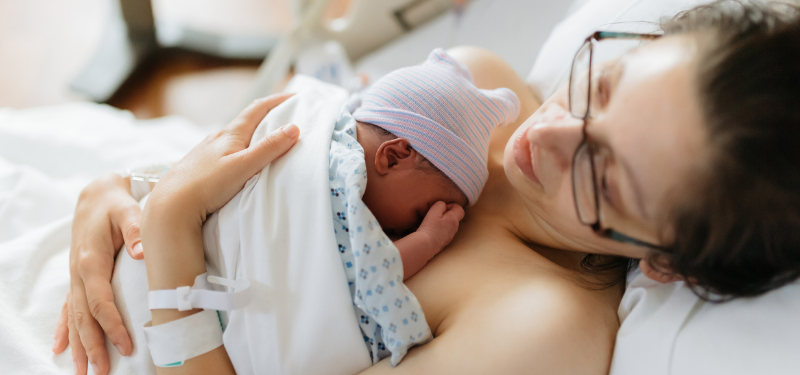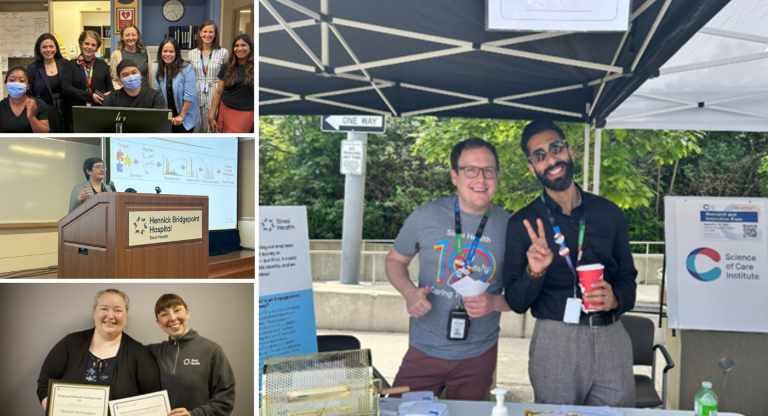The COVID-19 impact on pregnancy: new research from Mount Sinai Hospital

For over a year, the world has grappled with the COVID-19 pandemic, with far-reaching effects on society. Many that were expecting a child during this time had mounting questions and concerns: are vaccines safe? Can I attend appointments in person? Clinician researchers from Mount Sinai Hospital, part of Sinai Health have been studying the pandemic’s impact on pregnancy. Read below for key findings from their latest research.
Population-level pregnancy and neonatal outcomes
Co-authors from Mount Sinai include: Jie Yang, Rohan D’souza, Ashraf Kharrat, John W. Snelgrove, Kellie E. Murphy, Prakesh S. Shah.
Published in AOGS
Over the course of the pandemic, conflicting reports in rates of preterm birth and stillbirth have surfaced. The purpose of this research was to conduct a living systematic review of studies reporting pregnancy and neonatal outcomes by comparing the pandemic and pre-pandemic periods.
Researchers found that population-level preterm birth may have reduced during the pandemic, but there was no difference in stillbirths. Some reports noted a reduction in preterm births and attributed this to social and health behaviours associated with the pandemic. Majority of studies noting reductions were single center studies which are at risk of referral bias. Larger provincial/statewide/national studies did not show reduction in preterm births.
While the researchers did not observe an overall change in the odds of stillbirth during the pandemic, several studies reported increased odds of stillbirth compared to pre-pandemic periods. The increase in stillbirth was attributed to reduced antenatal surveillance, a reluctance to access in-hospital care due to increased stress and anxiety or missed appointments due to rapid changes in maternity care. This could be a signal to remain vigilant in attending to pregnant patients during difficult public health emergency situations.
This living systematic review will be updated every three months for the duration of the pandemic. To read the full review, visit here.
Leveraging the positive force of COVID-19 vaccines for pregnant and lactating individuals
Co-Authors include: Ann Kinga Malinowski, Wendy Whittle, Kellie Murphy, John Kingdom
Published in the Journal of Obstetrics and Gynaecology Canada
The exclusion of pregnant and lactating women from COVID-19 vaccine trials has hindered the ability of health care professionals to provide evidence-based counselling on the safety and efficacy of vaccines. This commentary reviews the current data on the safety of the COVID-19 vaccines in pregnancy.
Reassuringly, no studies have raised any specific concerns about COVID-19 vaccines during pregnancy or lactation. Vaccine side effects in pregnant individuals are similar to those experienced by non-pregnant persons, including arm soreness, fatigue, muscle aches and pain and mild fever. Furthermore, evidence of passive antibody transfer to infants through placenta and breastmilk have been found.
“It is clear that the risk of hospitalization and severe cases of COVID-19 during pregnancy far outweighs the very minimal risk of COVID-19 vaccination in pregnancy,” said Dr. Ann Kinga Malinowski, Maternal-Fetal Medicine Physician at Mount Sinai Hospital.
Vaccinated pregnant individuals are encouraged to participate in the Canadian COVID-19 Vaccine Registry for Pregnant and Lactating Individuals, a survey aiming to record outcomes and opinions regarding COVID-19 vaccine experiences.
More than 7,000 babies are born at Mount Sinai each year, two thirds of which are from high-risk pregnancies.
For more information on COVID-19 and pregnancy, visit https://www.sinaihealth.ca/covid19/covid-19-and-pregnancy/












